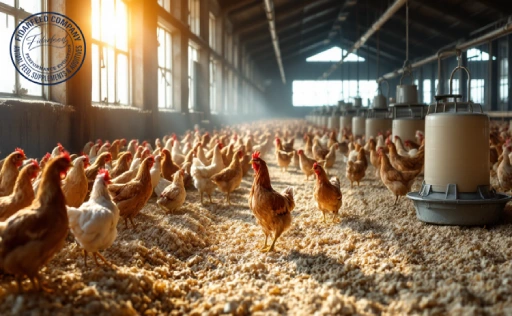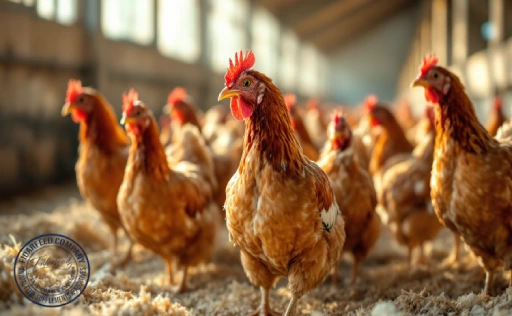
Cow Rumen Function is one of the most critical aspects of a cow’s overall health and productivity. When the rumen works efficiently, cows digest their feed better, absorb more nutrients, and convert food into milk or muscle more effectively. But when something disrupts this delicate balance—like toxins, pH fluctuations, or poor feed quality—the cow’s entire digestive system can be thrown off track. For breeders and professionals in the cow feed industry, optimizing rumen performance is not just a biological concern—it’s a direct path to higher profits, healthier animals, and greater sustainability. In this article, we’ll explore how bentonite, a naturally occurring clay, can significantly enhance cow rumen function. If you’re looking for a practical, research-backed solution to improve your herd’s performance, keep reading.
What Is Cow Rumen Function and Why Does It Matter?
The rumen is the largest of the four compartments in a cow’s stomach. It’s essentially a fermentation vat filled with billions of microbes that help break down complex plant materials like fiber and cellulose. These microbes convert feed into volatile fatty acids (VFAs), microbial protein, and other nutrients that the cow uses for energy, growth, and milk production.
Learn more about: Bentonite
When the rumen is healthy, cows eat better, gain weight steadily, produce more milk, and show fewer signs of digestive upset. But when the rumen becomes acidic (a condition known as acidosis) or is exposed to harmful substances, feed efficiency drops, health issues rise, and performance suffers.
For both small-scale and commercial breeders, maintaining optimal rumen function means less waste, fewer veterinary interventions, and a more predictable return on investment.
Bentonite for Cow Rumen Health: A Natural Feed Additive That Works
Bentonite is a type of clay formed from volcanic ash, rich in minerals such as calcium, sodium, and aluminum. But what makes it particularly valuable in animal nutrition is its remarkable ability to bind toxins, stabilize pH, and support gut health.
Learn more about: Top Bentonite Manufacturers for Animal Feed: What to Look For
Used in the animal feed industry for decades, bentonite is now gaining renewed attention thanks to recent studies and breeder testimonials. It’s safe, cost-effective, and easy to incorporate into feed rations. More importantly, it helps solve real-world problems faced by cattle farmers every day.
How Bentonite Enhances Cow Rumen Function and Microbial Balance
One of bentonite’s most significant benefits is its ability to stabilize rumen pH. The fermentation process in the rumen produces acids. When cows consume high-energy diets (especially with lots of grains), the rumen can become too acidic. Bentonite helps buffer this acidity, creating a more stable environment for microbes to thrive.
Learn more about: Tips for Buying High-Quality Bentonite at Competitive Prices
A healthy microbial population is essential. These microbes do the heavy lifting—breaking down fiber, producing essential nutrients, and supporting immune function. By supporting a stable pH and healthy microbial balance, bentonite directly improves feed digestion and nutrient uptake.
Bentonite’s Role in Binding Toxins and Protecting Cow Rumen Function
Mycotoxins—naturally occurring toxins produced by molds in feed—are a growing concern for cow breeders. These toxins often go undetected and can damage the rumen lining, suppress immunity, and reduce milk yield or weight gain.
Learn more about: biotechnology in animal feeds and animal feeding
This is where bentonite really shines. Its high adsorption capacity allows it to bind with harmful mycotoxins and heavy metals in the digestive tract, preventing them from entering the bloodstream. According to a 2020 study published in the Journal of Animal Science and Biotechnology, sodium bentonite significantly reduced the bioavailability of aflatoxins in dairy cows, leading to better overall performance.
By acting as a protective barrier in the gut, bentonite shields cows from the hidden enemies in their feed.
Improved Feed Efficiency with Bentonite Supplementation
Every cow breeder wants to get the most out of their feed. Feed is one of the largest expenses in cattle operations, so increasing feed efficiency directly impacts the bottom line.
When the rumen functions optimally, cows extract more energy and protein from the same amount of feed. With bentonite reducing toxin load and supporting microbial balance, cows experience fewer digestive disturbances, consume feed more consistently, and convert nutrients more effectively.
Learn more about: Everything You Need to Know About Wholesale Feed Additives
In a controlled trial conducted by the University of Illinois, beef cattle fed a bentonite-supplemented ration showed a 7% increase in average daily gain compared to the control group. That’s a real, measurable improvement that any breeder would welcome.
Practical Benefits for Cow Breeders: What You Can Expect
Whether you manage a small herd or oversee a large-scale operation, here are some of the benefits you can expect by adding bentonite to your cow feed program:
-
Fewer cases of bloating, diarrhea, and acidosis
-
Improved feed intake and appetite stability
-
Better average daily weight gains
Learn more about: Nanotechnology: Shaping the Future of Animal Feed Additives
-
Higher milk yields with more consistent quality
-
Reduced need for veterinary treatments and medication
-
Increased reproductive performance due to better nutrient absorption
These aren’t just theoretical perks—they’re the kinds of results that breeders across the globe are reporting after just a few weeks of consistent supplementation.
How to Use Bentonite in Your Cow Feeding Program
Adding bentonite to your feed routine is simple. Most commercial bentonite feed additives come in powder or granule form and can be mixed directly into total mixed rations (TMR) or top-dressed onto feed.
Learn more about: Top Factors to Consider When Choosing Animal Bulk Probiotic Suppliers
The ideal dosage typically ranges from 0.5% to 1.5% of dry matter intake, depending on feed composition and the presence of toxins. However, it’s always best to consult with a qualified animal nutritionist to tailor the dosage to your specific herd and conditions.
Make sure to introduce bentonite gradually, monitoring cow behavior, feed intake, and manure consistency as you adjust.
Choosing the Right Bentonite for Rumen Health
Not all bentonite products are created equal. Some contain higher levels of sodium, while others may have better binding capacities for specific toxins. When selecting a bentonite product, look for the following:
-
Certified toxin-binding properties (AFB1, DON, ZEA, etc.)
-
Proven rumen pH stabilization performance
-
Traceability and compliance with feed safety regulations
-
Compatibility with other feed additives
Reputable suppliers will provide technical sheets and third-party test results to confirm the product’s effectiveness.
Common Questions About Bentonite and Cow Rumen Function
While this isn’t a traditional FAQ section, it’s worth noting that breeders often wonder whether bentonite is safe long-term, whether it affects other minerals in the diet, or if it interacts with medications.
Learn more about: The Significance of Feed Additives in Animal Nutrition
Research shows that high-quality bentonite is safe for long-term use and does not interfere with essential nutrients when used at recommended levels. In fact, it often enhances mineral absorption by reducing competition from toxins.
Final Thoughts: Why Bentonite Is a Smart Investment for Every Cow Breeder
At the end of the day, your cows’ health is your business’s foundation. When you improve cow rumen function, everything else improves—growth, fertility, milk production, and profitability. Bentonite offers a smart, science-backed way to support that foundation. It’s not a magic cure-all, but as part of a balanced feed program, it delivers real, measurable benefits.







